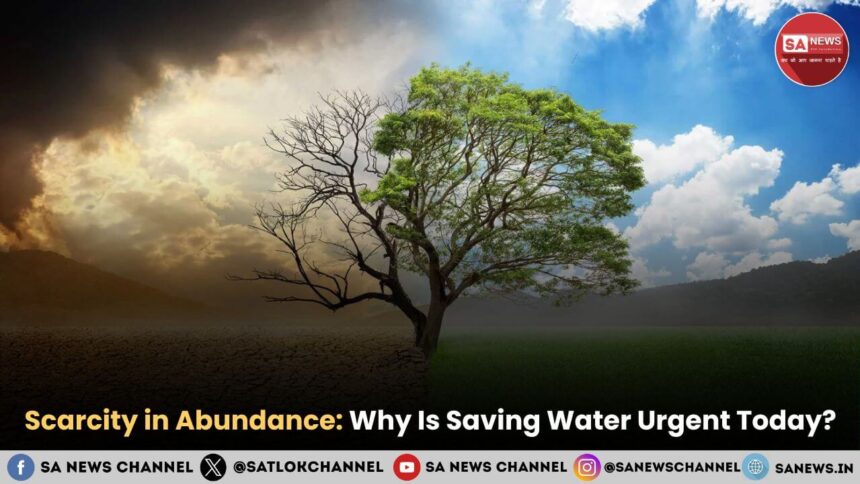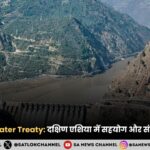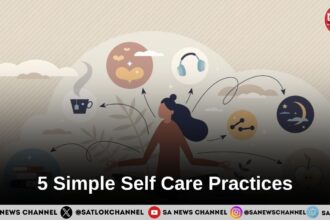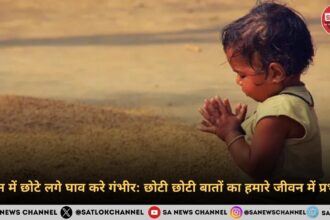What if the world ran out of drinking water tomorrow? Can you imagine a world without it? Water plays a crucial role in all life on Earth. Nothing on our planet can survive in the absence of water.
Importance of Water
Earth is the only planet in the solar system with liquid water covering 71% of its surface. Life first began in our oceans. Our food depends on water. Droughts highlight the importance of water, as food production tends to collapse during such times. Flora and fauna struggle to live. Water is also essential in secondary sector activities such as industry and construction.
The delicate balance of our climate and atmosphere will become chaotic if water is removed from the equation. Hence, we must understand this and use this abundantly available yet increasingly scarce resource wisely. From the single-celled organisms to elephants, every life depends on water. Sadly, plants and animals do not waste it nearly as much as humans do.
This article is a testimony to the fact that we need to “educate” people regarding the importance of water and how scarce it is becoming.
How Much Water is Available For Use?
People may say Earth is covered with water, so why conserve it? From all the water available on Earth, 97% is in the oceans. It is salty and cannot be used for drinking, washing or farming. Only 3% of the water is fresh and can be used. Imagine a population of approximately 8 billion people depending on only 3% of water. Moreover, this figure excludes the countless plants, animals, and insects who depend on water for survival. So, doesn’t the idea of water conservation sound legit now?
Water conservation
Water conservation is an activity that covers the efficient use of water and minimises its wastage. The intention is to ensure that our future generations won’t have to struggle due to the unavailability of water.
Tips to conserve water
For households
We can see a lot of water wastage in a regular home. For example, keeping the faucet running while brushing or shaving. Let’s see what we can do in our homes to minimize this wastage.
- Check the pipes regularly for leaks
- Rinse veggies in a bowl, not under running water
- Use low-flow showers
- Install dual flush systems
- Choose water-efficient dishwashers and washing machines
- Keep the shower off while applying soap or shampoo
- Plant succulents as they need little watering
- Collect rainwater for later use in gardening, cleaning, or non-potable applications
- Use buckets for car washing rather than a hose
For Community
Just like regular homes, communal activities also lead to ruthless wastage of water. For example, in Holi, people waste huge quantities of water just for fun. The water provided by the government, which was meant for cooking, drinking and cleaning purposes, is used for activities like “rain dance”. Communities should use the following measures to improve water efficiency.
- Housing societies and villas should step up for rainwater harvesting
- Create water restrictions and regulations to reduce water wastage in housing societies
- They should undertake timely inspections to detect leaks and promptly fix them
- Set up systems to treat and reuse grey water for gardening or flushing in public toilets
- Organise river or lake cleaning drives
- Hold camps and workshops to educate people on rainwater harvesting.
- Conduct campaigns to spread awareness about water scarcity and water management.
These are a few tips individuals and communities can implement to conserve this super essential element. The situation on Earth looks paradoxical as there is scarcity in abundance. What if we told you there’s a place where there’s no scarcity? Everything is available to everyone without any cost or strings attached. I’m sure this will make you curious about where this place is and what it’s called.
What is this place?
That place is called Satlok. It is located 1600 quadrillion kilometres away from Earth. It’s where the Supreme Almighty “Our Father in Heaven” lives. To know about Him, you must listen to the spiritual teachings of Saint Rampal Ji Maharaj, or you can order your free copy of this amazing book, “Gyan Ganga”
FAQs
- How to save water as a student?
Ans: You can take shorter showers, fix leaking taps or turn off any running taps at your school.
- Why is water important?
Ans: Water is crucial for the survival of all living beings, apart from maintaining global temperatures and hydration.
- What is the water cycle?
Ans: It is the movement of water on, above and below the Earth’s surface by changing its form or state
- How is water formed?
Ans: Water is formed by combining two hydrogen atoms and one oxygen atom. Symbolically, it’s written as H2O.
- What are the four stages in the water cycle?
Ans: The four stages are evaporation, convection, precipitation and collection.









